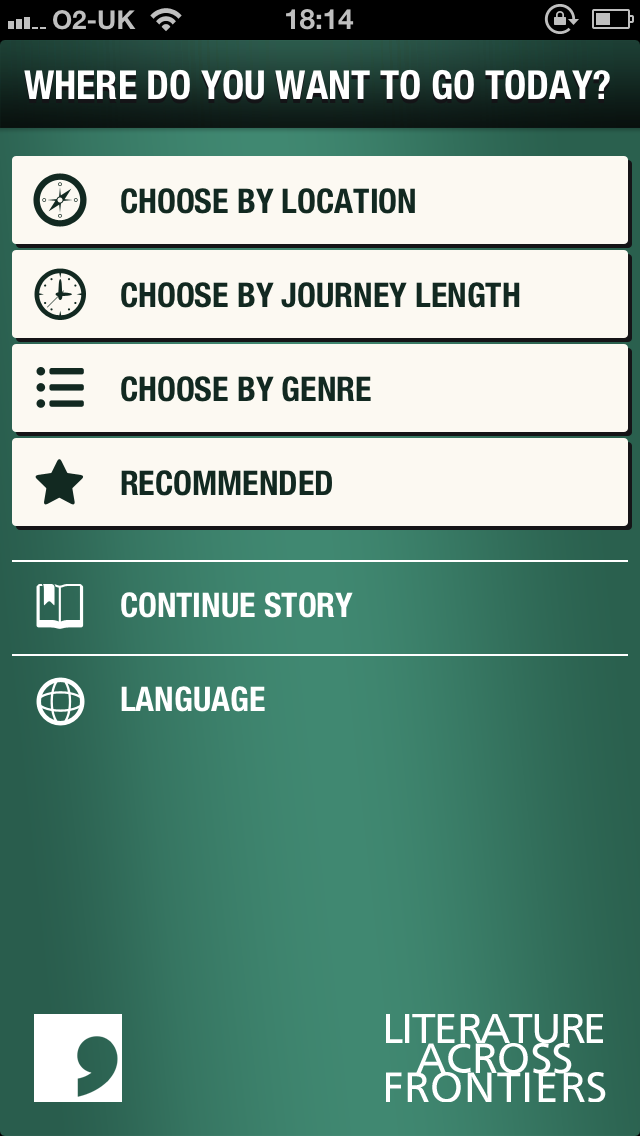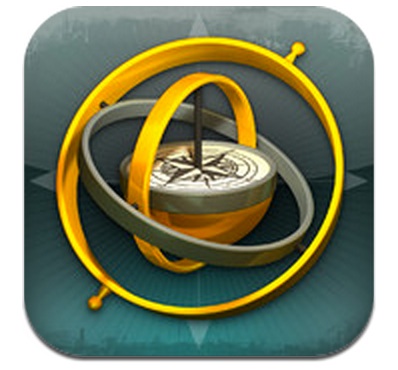
Jim Hinks, Digital Editor at Comma Press,
tells us how the Gimbal app arrived on our phones
The city is a fecund place for the short story. Perhaps it’s because, in our day-to-day metaphysical sense of things, the individual is pitted against a vast, indifferent world, and the closest fictional analogue sets the protagonist in an urban milieu. Perhaps it’s because these days, cities are where you’re likely to find what Frank O’Connor called ‘submerged populations’ – the invisible and the voiceless, caught momentarily in the spotlight of the short story, before stealing back into the shadows. Or it could be because short stories tend to vector on emblematic encounters between strangers (more so than the typical novel, with its long-arced relationships), and what better place for these encounters than shared, municipal spaces thronging with people? In piazzas and backstreets, in cafés and pubs, on trams and buses and train station concourses, people collide like atoms… Some of them are short story writers, and they carry notebooks.
Comma Press have always published city stories; it’s written into our DNA. Ten years ago, Ra Page founded Comma by publishing a series of ‘city stories’ booklets – short stories set in Manchester, Leeds, Liverpool and Newcastle. Since then, we’ve published thousands of city stories, from the UK and beyond. In fact, about half our output these days is from overseas. Short stories translate well: the situations they depict are often more universal than the novel, and yet they cling to their original language less tenaciously than the poem. This makes them perfect vehicles for imaginary journeys into unfamiliar locations and cultures.
 This month Comma launched the Gimbal iPhone app, which you can download free at the App Store if you have an iPhone or an iPad. The idea’s quite simple: short stories set in cities across the world, which you can listen to, or read in eBook form. All the stories feature a journey across a city, and as you listen, the app charts the journey on a map (with additional information about key locations), so you can explore the context as the story unfolds.
This month Comma launched the Gimbal iPhone app, which you can download free at the App Store if you have an iPhone or an iPad. The idea’s quite simple: short stories set in cities across the world, which you can listen to, or read in eBook form. All the stories feature a journey across a city, and as you listen, the app charts the journey on a map (with additional information about key locations), so you can explore the context as the story unfolds.
A gimbal, by the way, is a navigational device – a sort of gyroscopic mounting for a ship’s compass.
The Gimbal app is perfect for commuters who, like me, want to let the humdrum journey to work dissolve around them, and take an imaginary journey instead (confession: I have also Gimballed in bed, at my desk, and in the bath).
As well as creating an app that’s very usable and aimed at a wide, general audience, Comma are trying to do something quite particular with the Gimbal app, with regard to literature in translation. The problem of how little literature in translation finds its way into the laps of UK readers is well documented. The famous figure of 3% is oft quoted – only 3% of fiction sold in the UK is in translation, whilst in France, Germany, Spain, and so on, it’s far greater (and of course, in countries with a more modest history of aggressive imperialism, it’s greater still).
Much has been written about the consequences of us being so insular (or English-centric) in our reading, and some progress has, of course, been made over the last five or so years, particularly with Scandinavian crime fiction. But what makes it into translation over here often still depends on ‘existing reader familiarity’. The reader must already be familiar with either the author – a Catch-22 with fiction in translation – or with a world-news topic associated with that particular country. Fine for a Serbian author to write a novel, but it had better be about ethnic cleansing or we’re not interested, thanks very much. The Bangladeshi novels making it into print in the UK in the next few years may well be about the experience of working in overcrowded clothing factories (which would be a good thing, of course), but there isn’t a way for brilliant writing to make it over here purely on its own merit.
The point of the Gimbal app is to put the emphasis not on existing familiarity, but the opposite – to let people be driven by curiosity alone, to explore new territories, and find themselves reading stories because of an interest, affection or curiosity for the city.
The response to the app so far has been amazing. We expected people to like the content, but we’ve been surprised by how much people love the discoverability of stories and  authors within the app, too. You can select a story by location, by genre, by mode of transport, or by length – to match that of your own journey. It solves the problem of ‘I’ve got 25 minutes to kill, what can I read?’
authors within the app, too. You can select a story by location, by genre, by mode of transport, or by length – to match that of your own journey. It solves the problem of ‘I’ve got 25 minutes to kill, what can I read?’
Much of the success has been down to strong partnerships. The developers, Toru Interactive, really took the time to understand what we wanted, and how to make the app optimally intuitive and navigable. Likewise, we partnered with Literature Across Frontiers, a brilliant organisation which coordinates innovative literary exchanges between writers from around the world. They sent eight writers to visit each others’ cities, to ride around on public transport and write stories specially for the Gimbal app, to go along with stories by Comma Press authors.
Future iterations will bring Gimbal to Android OS, and increase the functionality, including Google Street View capability. We’re also looking at replicating the success of Gimbal for some of our science-literature crossover projects: an app of ‘real science fiction’ stories written in consultation with scientists, with audio-visual explanations of the key scientific concepts involved; and an app of essays by contemporary authors on their favourite short story writers, including full text and audio versions of their out-of-copyright works. Again, it’s all about discoverability – inviting readers to take a journey, be it conceptual, imaginary or literal.
~
Gimbal is available free on the App Store for iPhone and iPad.
You can find out more about the app at www.commapress.co.uk
~
 Jim Hinks is the Digital and Translation Editor at Comma Press, the Manchester-based independent publisher specialising in short fiction. He leads Comma’s digital output, coordinating the production of Comma’s eBook titles and app projects.
Jim Hinks is the Digital and Translation Editor at Comma Press, the Manchester-based independent publisher specialising in short fiction. He leads Comma’s digital output, coordinating the production of Comma’s eBook titles and app projects.
Jim is the headline editor of four short story anthologies: Brace: A New Generation in Short Fiction; Reberth: Stories from Cities on the Edge; The Book of Istanbul (recently listed in The Guardian’s top 10 books about Turkey); and About You (forthcoming, 2014). He’s a part-time PhD student at Edge Hill University, where he specialises in the short story.
~
Watch a video demo of the Gimbal app:

